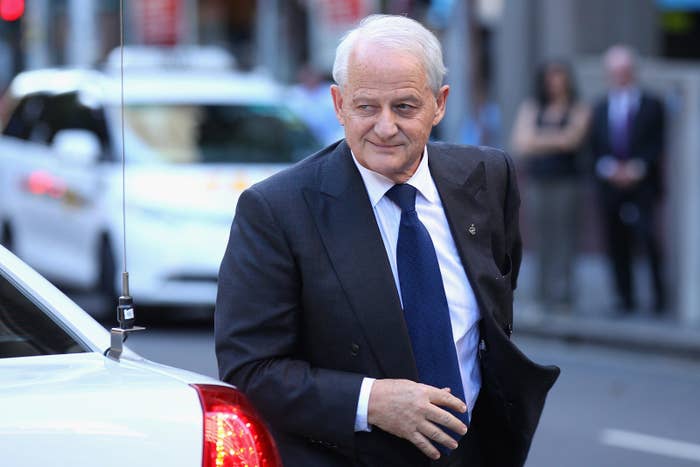
On Thursday, May 27 2004, then-attorney-general Philip Ruddock rose to his feet in the House of Representatives and introduced legislation to ban same-sex marriage.
"This bill is necessary because there is significant community concern about the possible erosion of the institution of marriage," he said.
"The parliament has an opportunity to act quickly to allay these concerns. It is a central and fundamental institution. It is vital to the stability of our society and provides the best environment for the raising of children.
"The government has decided to take steps to reinforce the basis of this fundamental institution."
There was concern at the time that the wording of the Marriage Act as it stood then would leave it open for gay couples in Australia to go overseas to Canada and get married and then force the Australian government to recognise their marriages back in Australia.
With Labor support, the then-Coalition government quickly passed legislation that inserted definition of marriage as between one man and one woman, and forced all marriage celebrants to say the following line at every wedding in the past 13 years:
"Marriage, according to law in Australia, is the union of a man and a woman to the exclusion of all others, voluntarily entered into for life."
Now, as the Australia's politicians are locked into a debate over whether those very same marriage celebrants should be forced to officiate same-sex weddings, the same man who set about to ban same-sex marriage in the first place is now responsible for looking into the oft-claimed religious freedom implications of winding back the change to the law he quickly made in 2004.
Prime minister Malcolm Turnbull announced on Wednesday that Ruddock – now the mayor of Hornsby Shire – will be investigating the impact Australian law has on religious freedom, particularly as parliament debates marriage equality.
"Any reforms to protect religious freedom at large should be undertaken carefully. There is a high risk of unintended consequences when Parliament attempts to legislate protections for basic rights and freedoms, such as freedom of religion. The government is particularly concerned to prevent uncertainties caused by generally worded Bill of Rights-style declarations," Turnbull said in a press release.
The debate follows the result of the postal survey on same-sex marriage returning a "yes" result of 61.6% in support of making the change to Australian law to allow same-sex couples to marry.
The appointment appears designed to head off conservatives within the government seeking to insert, via amendments to the Dean Smith marriage equality bill, new statements aimed at allowing religious and non-religious organisations and individuals to discriminate against same-sex weddings and marriages if they hold a religious or contentious objection to same-sex marriage.
Ruddock will have the help of an expert panel including the new Australian Human Rights Commission president Rosalind Croucher, former Federal Court judge Annabelle Bennett, and human rights lawyer and Jesuit priest Father Frank Brennan.
Ruddock has been asked to report back to government by the end of March next year.
Debate on the legislation will resume in the Senate next week, and is expected to arrive in the House of Representatives in the first week of December. The government has said the legislation will be passed by the end of this year, flagging that the House of Representatives could sit in the second week of December if it is not passed before then.

